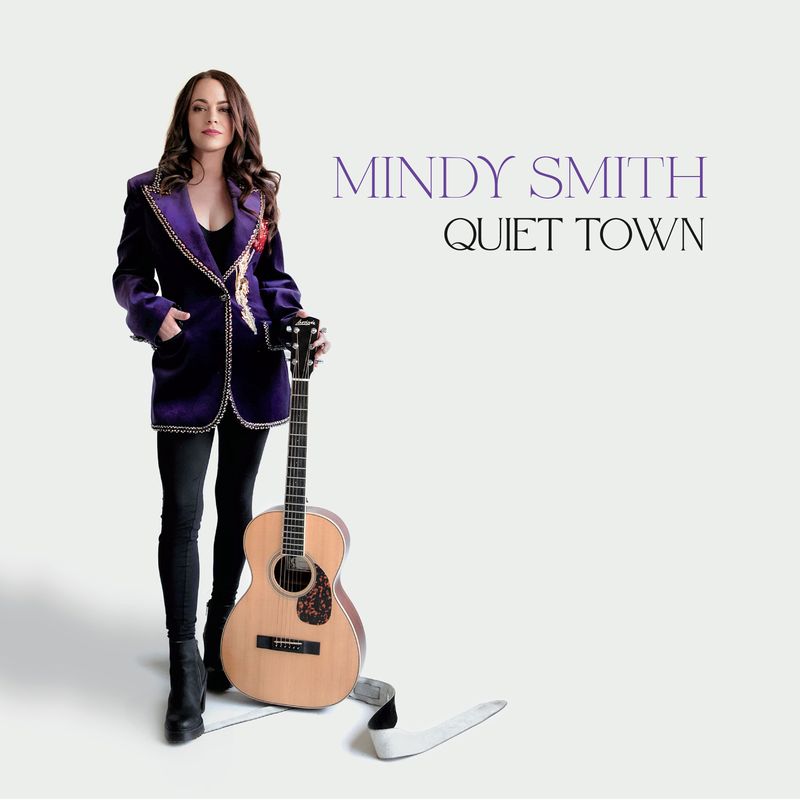ALBUM REVIEW: Twelve Years Later, Mindy Smith Is Back in the Best Way

When Long-Island-native-turned-Nashville-resident Mindy Smith first arrived on the music scene in the early 2000s, it was a moment of possibility in the Americana world. The buzzy hype of late 1990s alt-country had swelled over and made inroads across indie, rock, and country commercial spaces. It wasn’t hard to imagine an artist like Mindy Smith, who paired grounded songwriting traditionalism with subtle flourishes of indie rock atmosphere and pop melodicism, breaking through on a national stage.
Ultimately, it would be Kacey Musgraves, a self-professed disciple of Smith’s, who would make that kind of breakthrough more than a decade later with 2018’s Golden Hour, ushering in a new space for Americana-leaning songcraft to be more mainstream. That this moment came at a time in which Smith, who until Quiet Town hadn’t released an album since her 2012 self-titled collection, feels somewhat unfair, given how little her skillset and appeal have diminished in the intervening years.
While these eleven songs don’t break much new ground for the singer-songwriter, there’s something lovely about such modest updates, given the quasi-hiatus. Working with seasoned Americana producer Neilson Hubbard (Amy Speace, Mary Gauthier) and a host of familiar Nashville season players (including guitarists Will Kimbrough and Megan McCormick), most of the arrangements here are rustic and warm, hinting at the traditionalism of Nanci Griffith and Emmylou Harris rather than playing to any notion of “pop.” Things get their most eclectic on songs like the lead single “Jericho,” a Matraca Berg co-write that invites some lightly trippy psychedelic touches over a disquietly rumbling rhythm section. Smith finds the darkness inherent in the gospel flourishes of the folk tradition.
Elsewhere, though, arrangements are restrained in favor of showcasing the songs and vocal performances, to great effect. Like the similarly-minded Lori McKenna, Smith is often preoccupied with finding deeper meaning in small-scale scenes and stories. Tunes like “Quiet Town” or “Something to Write in Stone” are excellent examples of this penchant, each a tale of searching for attainable meaning in moments of quiet reverie.
Traces of Smith’s sly pop smarts crop up on tunes like “Every Once in a While” and “Farther Than We Should Have.” Neither departs much from the conventions of Americana, but their well-honed hooks and shimmering melodicism hint at adult contemporary potential even if they don’t stoop to it.
Taken as a whole, there’s something small-bore about this collection, in the best sense. Smith’s best music has always been modest yet mesmerizing, and Quiet Town proves her gift for such musical alchemy is far from lost.
Mindy Smith’s Quiet Town releases Oct. 4 on Compass Records.


